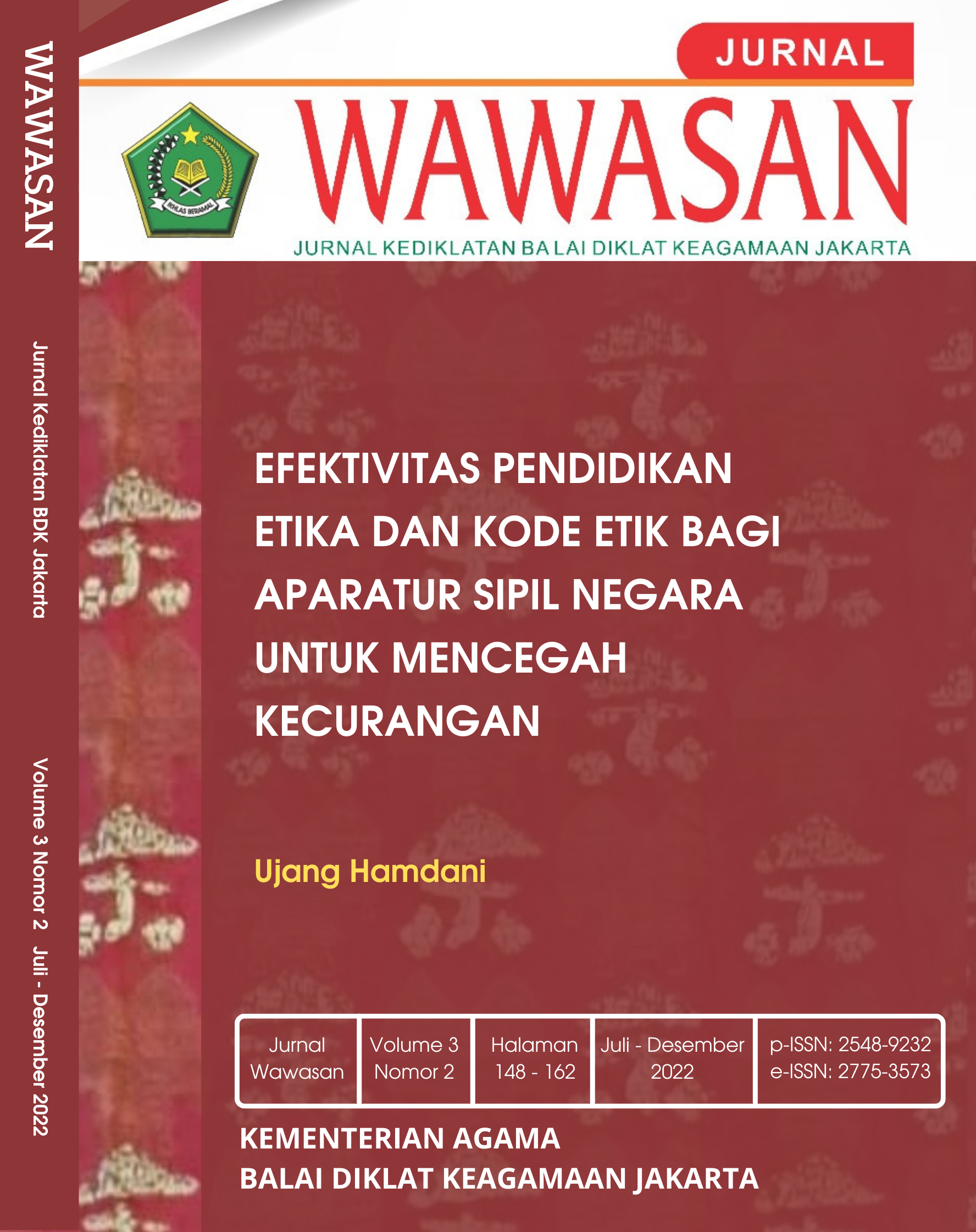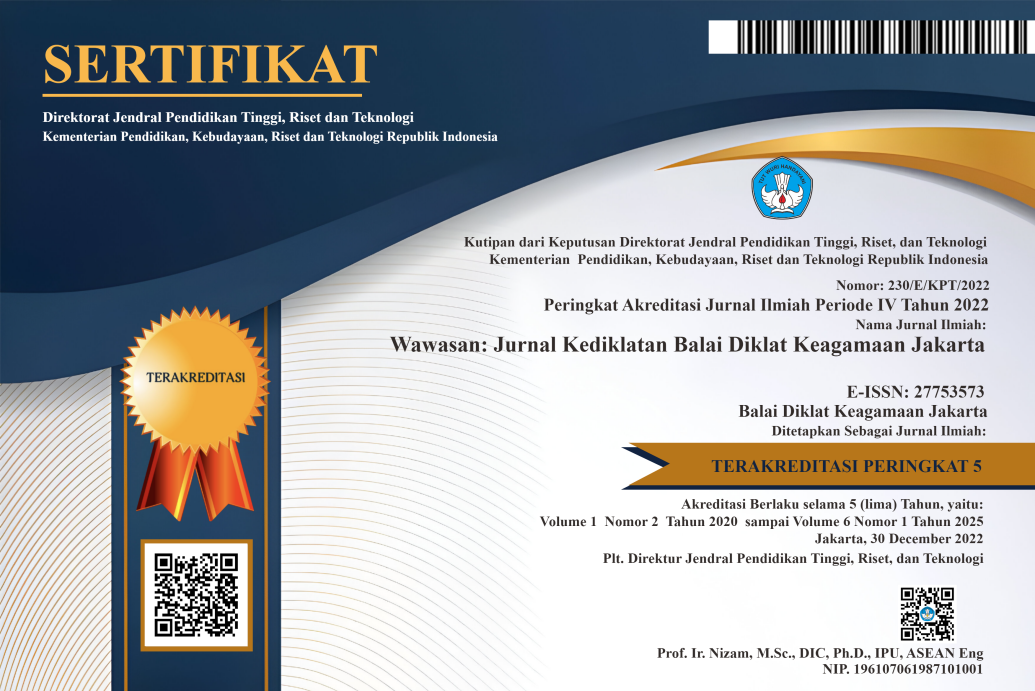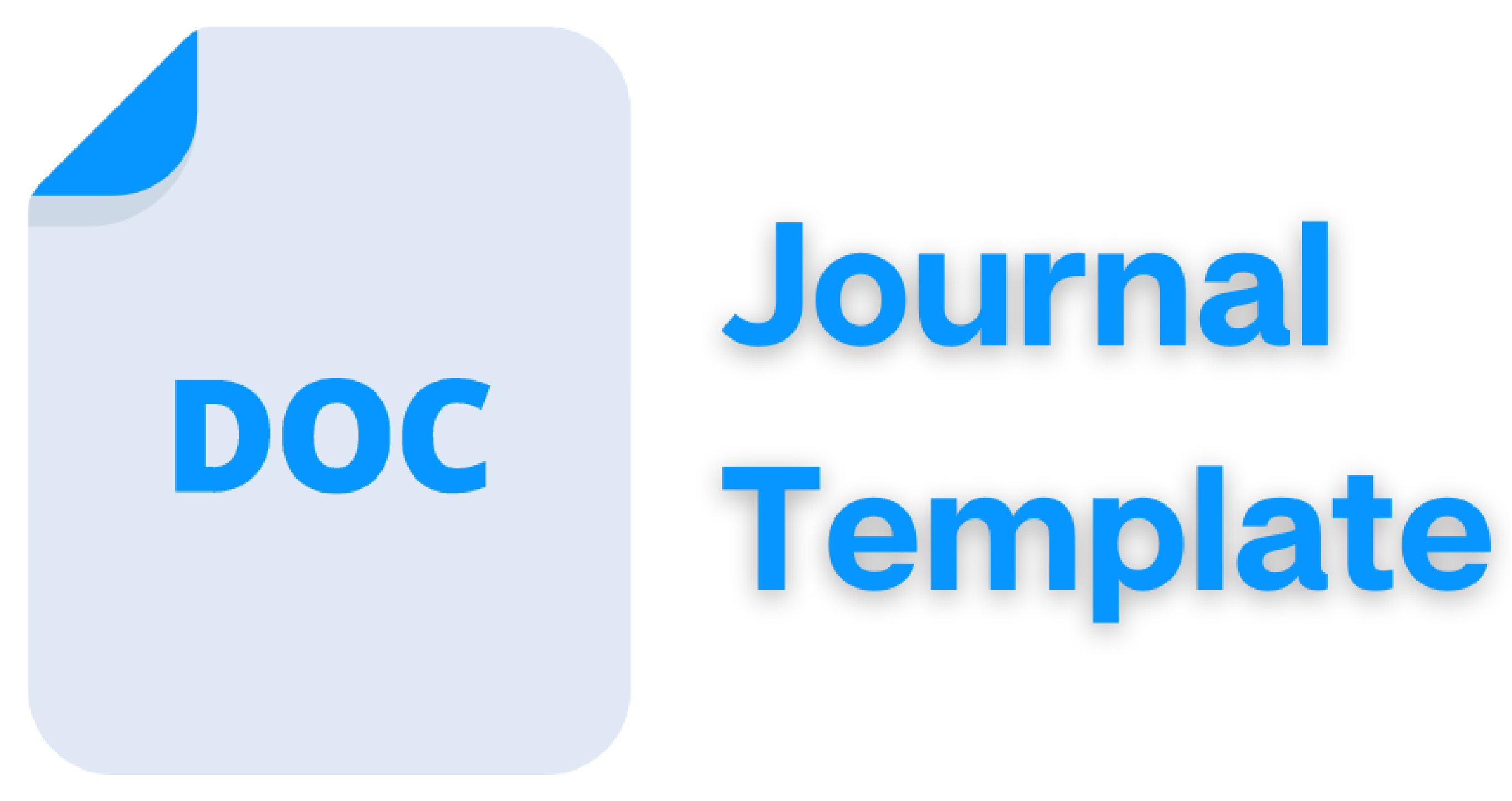EFEKTIVITAS PENDIDIKAN ETIKA DAN KODE ETIK BAGI APARATUR SIPIL NEGARA UNTUK MENCEGAH KECURANGAN
DOI:
https://doi.org/10.53800/wawasan.v3i2.159Keywords:
pendidikan etika, kode etik, pengendalian internal, aparatur sipil negara, pencegahan fraudAbstract
Abstract
This research aims to describe effective, ethical programs and codes of ethics for civil servants to prevent fraud in government institutions. We used qualitative descriptive analysis to describe our research. We used secondary data from various reputated journal articles, documents, and other relevant sources. The data were analyzed with descriptive methods to understand the research objects comprehensively. The research shows that government institutions should implement ethical programs and codes of ethics to regulate the behavior of civil servants. The Head of the agency should be a role model in ethical implementation. Top management must also address special units to monitor the implementation of ethical codes.
Abstrak
Tujuan dari penelitian ini adalah menggambarkan pelaksanaan pendidikan etika dan kode etik yang efektif bagi ASN untuk mencegah kecurangan di lingkungan instansi pemerintah. Penelitian menggunakan metode analisis bibliometric. Data penelitian ini bersumber ari berbagai artikel jurnal ilmiah, dokumen dan sumber lain yang relevan. Data tersebut dianalisis untuk memperoleh pemahaman yang komprehensif mengenai obyek penelitian. Simpulan penelitian ini menunjukkan bahwa instansi pemerintah perlu menyusun program etika dan kode etik, sebagai bagian dari pengendalian internal, untuk menjaga integritas ASN. Pimpinan instansi perlu menjadi role model dalam pelaksanaan nilai etika. Pimpinan instansi juga perlu menunjuk unit tertentu untuk melakukan pemantauan atas penegakan etika.
Downloads
References
Association of Certified Fraud Examiners (ACFE) Indonesia. (2019). Survei Fraud Indonesia 2019.
Baucus, M. S., & Beck-Dudley, C. L. (2005). Designing ethical organizations: Avoiding the long-term negative effects of rewards and punishments. Journal of Business Ethics, 56(4), 355–370. https://doi.org/10.1007/s10551-004-1033-8
Brenner, S. N. (1992). Ethics programs and their dimensions. Journal of Business Ethics, 11(5–6), 391–399. https://doi.org/10.1007/BF00870551
Cassell, C., Johnson, P., & Smith, K. (1997). Opening the Black Box: Corporate Codes of Ethics in Their Organizational Context. Journal of Business Ethics, 16(10), 1077–1093. https://doi.org/10.1023/A:1017926106560
Claresta, O. (2017). Pengaruh Pemahaman Kode Etik Akuntan terhadap Perilaku Etis Akuntan di Malang. Jurnal Ilmiah Mahasiswa Fakultas Ekonomi dan Bisnis, 5(2), 1–20.
Committee of Sponsoring Organizations of the Treadway Commission (COSO). (2013). COSO Internal Control Integrated Framework (2013).
Cressy, R., Cumming, D., & Mallin, C. (2010). Entrepreneurship, Governance and Ethics. Journal of Business Ethics, 95(SUPPL. 2), 117–120. https://doi.org/10.1007/s10551-011-0848-3
D’Aquila, J. M. (2001). Financial accountants’ perceptions of management’s ethical standards. Journal of Business Ethics, 31(3), 233–244. https://doi.org/10.1023/A:1010707303007
Doyle, J., Ge, W., & McVay, S. (2007). Determinants of weaknesses in internal control over financial reporting. Journal of Accounting and Economics, 44(1–2), 193–223. https://doi.org/10.1016/j.jacceco.2006.10.003
Duong, H. K., Fasan, M., & Gotti, G. (2021). Living up to your codes? Corporate codes of ethics and the cost of equity capital. Management Decision, 60(13), 1–24. https://doi.org/10.1108/MD-11-2020-1486
Ferine, K. F., Aditia, R., Rahmadana, M. F., & Indri. (2021). An empirical study of leadership, organizational culture, conflict, and work ethic in determining work performance in Indonesia’s education authority. Heliyon, 7(7), e07698. https://doi.org/10.1016/j.heliyon.2021.e07698
Johansson, E., & Carey, P. (2016). Detecting Fraud: The Role of the Anonymous Reporting Channel. Journal of Business Ethics, 139(2), 391–409. https://doi.org/10.1007/s10551-015-2673-6
Jubb, P. B. (1999). Whistleblowing: A restrictive definition and interpretation. Journal of Business Ethics, 21(1), 77–94. https://doi.org/10.1023/A:1005922701763
Kaptein, M. (2015). The Effectiveness of Ethics Programs: The Role of Scope, Composition, and Sequence. Journal of Business Ethics, 132(2), 415–431. https://doi.org/10.1007/s10551-014-2296-3
Kaptein, M., & Schwartz, M. S. (2008). The effectiveness of business codes: A critical examination of existing studies and the development of an integrated research model. Journal of Business Ethics, 77(2), 111–127. https://doi.org/10.1007/s10551-006-9305-0
Kartika, M. (2021). 58 persen pidana korupsi yang ditangani KPK terjadi di pemda. Republika.
Khalisah, N., Akib, H., Darwis, M., Aslinda, A., & Rizal, M. (2022). Pengaruh Kode Etik (Code of Conduct) Terhadap Kinerja Karyawan PT. PLN (Persero) Unit Pelaksana Pengendalian dan Pembangkitan Tello. Jurnal Ilmu Administrasi Bisnis, 1(1), 43–48.
Kilmann, R. H. (1985). Corporate Culture: Managing the Intangible Style of Corporate Life May Be the Key to Avoiding Stagnation. In Psychology Today.
Komisi Aparatur Sipil Negara. (2018). Pengawasan Penegakan Kode Etik dan Kode Perilaku Pegawai Aparatur Sipil Negara.
Komisi Pemberantasan Korupsi. (2018). Survei Penilaian Integritas Laporan Ilmiah Gabungan 2018.
KPMG. (2020). Covid-19: Fraud Survey.
Laczniak, G. R. (1993). Marketing Ethics: Onward toward Greater Expectations. Journal of Public Policy & Marketing, 12(1), 91–96. https://doi.org/10.1177/074391569501200109
Langton, N., Robbins, S. P., & Judge, T. A. (2016). Organizational behaviour Concept, Controversies, Applications. In Psychology and People: A Tutorial Text (7 ed.). Pearson. https://doi.org/10.1007/978-1-349-16909-2_19
Lee, T. A. (1971). Seventeenth Century The Historical Development of Internal. Journal of Accounting Research, 9(1), 150–157.
Near, J. P., & Miceli, M. P. (1996). Whistle-Blowing : Myth and Reality. Journal of Management, 22(3), 507–526.
Park, H., & Blenkinsopp, J. (2013). The impact of ethics programmes and ethical culture on misconduct in public service organizations. International Journal of Public Sector Management, 26(7), 520–533. https://doi.org/10.1108/IJPSM-01-2012-0004
Petraşcu, D., & Tieanu, A. (2014). The Role of Internal Audit in Fraud Prevention and Detection. Procedia Economics and Finance, 16(May), 489–497. https://doi.org/10.1016/s2212-5671(14)00829-6
Proenca, E. J. (2004). Ethics Orientation as a Mediator of Organizational Integrity in Health Services Organizations. Health Care Management Review, 29(1), 40–50. https://doi.org/10.1097/00004010-200401000-00006
Rafrianika. (2022). Kualitas Pelayanan pada UPT Asrama Haji Embarkasi Bekasi. Jurnal Kediklatan Balai Diklat Keagamaan Jakarta, 3(1), 123–133.
Rahman, R. A., & Anwar, I. S. K. (2014). Effectiveness of Fraud Prevention and Detection Techniques in Malaysian Islamic Banks. Procedia - Social and Behavioral Sciences, 145(February 2016), 97–102. https://doi.org/10.1016/j.sbspro.2014.06.015
Sandelowski, M. (2000). Focus on Research Methods Whatever Happened to Qualitative Description? Research in Nursing & Health, 23, 334–340. https://doi.org/10.1016/S0009-9260(05)82940-X
Schein, E. H. (2017). Organizational Culture and Leadership. In The Innovator’s Discussion (5 ed.). John Wiley & Sons. https://doi.org/10.4324/9781351017510-15
Schuchter, A., & Levi, M. (2013). The Fraud Triangle revisited. Security Journal, 29(2), 107–121. https://doi.org/10.1057/sj.2013.1
Schwartz, M. S. (2004). Effective corporate codes of ethics: Perceptions of code users. Journal of Business Ethics, 55(4), 323–343. https://doi.org/10.1007/s10551-004-2169-2
Sigler, T. H., & Pearson, C. M. (2000). Creating an empowering culture: examining the relationship between organizational culture and perceptions of empowerment. Journal of Quality Management, 5(1), 27–52. https://doi.org/10.1016/s1084-8568(00)00011-0
Singh, J. B., Wood, G., Callaghan, M., Svenson, G., & Andersson, S. (2018). Operationalizing Business Ethics in Organizations: The Views of Executives in Australia, Canada and Sweden. European Business Review, 30(4), 494–510.
Smith, R. W. (2003). Corporate ethics officers and government ethics administrators comparing apples with oranges or a lesson to be learned? Administration and Society, 34(6), 632–652. https://doi.org/10.1177/0095399702239168
Transparency International. (2022). Corruption Perceptions Index.
Valentine, S. R., Hanson, S. K., & Fleischman, G. M. (2019). The Presence of Ethics Codes and Employees’ Internal Locus of Control, Social Aversion/Malevolence, and Ethical Judgment of Incivility: A Study of Smaller Organizations. Journal of Business Ethics, 160(3), 657–674. https://doi.org/10.1007/s10551-018-3880-8
Wardiwiyono, S. (2012). Internal control system for Islamic micro financing: An exploratory study of Baitul Maal wat Tamwil in the City of Yogyakarta Indonesia. International Journal of Islamic and Middle Eastern Finance and Management, 5(4), 340–352. https://doi.org/10.1108/17538391211282836
Webley, S., & Werner, A. (2008). Corporate codes of ethics: necessary but not sufficient. Business Ethics: A European Review, 17(4), 405–415. https://doi.org/10.1111/j.1467-8608.2008.00543.x
Wells, J. T. (2017). Corporate Fraud Handbook. In Corporate Fraud Handbook (5 th). John Wiley & Sons. https://doi.org/10.1002/9781119351962
WIDAPRATAMA, F. R. W., & RAHARJO, S. T. (2017). Pentingnya Memahami Peran Dan Fungsi Serta Kode Etik Supervisi Pekerja Sosial Dalam Profesi Pekerja Sosial Di Indonesia. Prosiding Penelitian dan Pengabdian kepada Masyarakat, 4(2), 257–262. https://doi.org/10.24198/jppm.v4i2.14342

Published
Issue
Section
License
Copyright (c) 2022 Wawasan: Jurnal Kediklatan Balai Diklat Keagamaan Jakarta

This work is licensed under a Creative Commons Attribution-ShareAlike 4.0 International License.

















